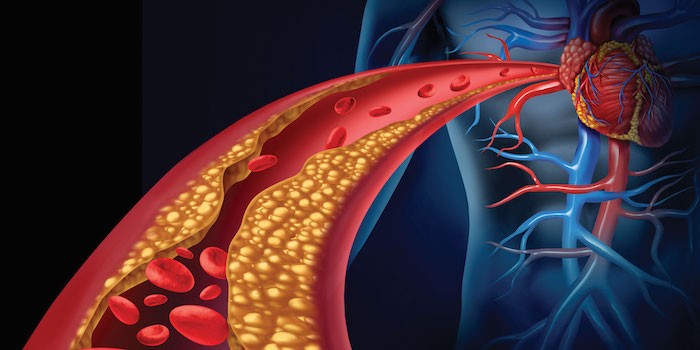How the heart works
Your heart is a pump. It’s a muscular organ about the size of your fist, situated slightly left of center in your chest. Your heart is divided into the right and the left side. The division protects oxygen-rich blood from mixing with oxygen-poor blood. Oxygen-poor blood returns to the heart after circulating through your body.
- The right side of the heart, comprising the right atrium and ventricle, collects and pumps blood to the lungs through the pulmonary arteries.
- The lungs refresh the blood with a new supply of oxygen. The lungs also breathe out carbon dioxide, a waste product.
- Oxygen-rich blood then enters the left side of the heart, comprising the left atrium and ventricle.
- The left side of the heart pumps blood through the aorta to supply tissues throughout the body with oxygen and nutrients.
Heart valves
Four valves within your heart keep your blood moving the right way by opening only one way and only when they need to. To function properly, the valve must be formed properly, must open all the way and most close tightly so there’s no leakage. The four valves are:
- Tricuspid
- Mitral
- Pulmonary
- Aortic
Heartbeats
A beating heart contracts and relaxes in a continuous cycle.
- During contraction (systole), your ventricles contract, forcing blood into the vessels to your lungs and body.
- During relaxation (diastole), the ventricles are filled with blood coming from the upper chambers (left and right atria).
Electrical system
Your heart’s electrical wiring keeps it beating, which controls the continuous exchange of oxygen-rich blood with oxygen-poor blood. This exchange keeps you alive.
- Electrical impulses begin high in the right atrium and travel through specialized pathways to the ventricles, delivering the signal for the heart to pump.
- The conduction system keeps your heart beating in a coordinated and normal rhythm, which keeps blood circulating.
Various heart disease causes
The causes of heart disease vary by type of heart disease.
Causes of cardiovascular disease
While cardiovascular disease can refer to different heart or blood vessel problems, the term is often used to mean damage to your heart or blood vessels by atherosclerosis (ath-ur-o-skluh-ROE-sis), a buildup of fatty plaques in your arteries. Plaque buildup thickens and stiffens artery walls, which can inhibit blood flow through your arteries to your organs and tissues.
Atherosclerosis is also the most common cause of cardiovascular disease. It can be caused by correctable problems, such as an unhealthy diet, lack of exercise, being overweight and smoking.
Causes of heart arrhythmia
Common causes of abnormal heart rhythms (arrhythmias) or conditions that can lead to arrhythmias include:
- Heart defects you’re born with (congenital heart defects)
- Coronary artery disease
- High blood pressure
- Diabetes
- Smoking
- Excessive use of alcohol or caffeine
- Drug abuse
- Stress
- Some over-the-counter medications, prescription medications, dietary supplements and herbal remedies
- Valvular heart disease
In a healthy person with a normal, healthy heart, it’s unlikely for a fatal arrhythmia to develop without some outside trigger, such as an electrical shock or the use of illegal drugs. That’s primarily because a healthy person’s heart is free from any abnormal conditions that cause an arrhythmia, such as an area of scarred tissue.
However, in a heart that’s diseased or deformed, the heart’s electrical impulses may not properly start or travel through the heart, making arrhythmias more likely to develop.
Causes of congenital heart defects
Heart defects usually develop while a baby is in the womb. Heart defects can develop as the heart develops, about a month after conception, changing the flow of blood in the heart. Some medical conditions, medications and genes may play a role in causing heart defects.
Heart defects can also develop in adults. As you age, your heart’s structure can change, causing a heart defect.
Causes of cardiomyopathy
The cause of cardiomyopathy, a thickening or enlarging of the heart muscle, may depend on the type:
- Dilated cardiomyopathy.The cause of this most common type of cardiomyopathy often is unknown. It may be caused by reduced blood flow to the heart (ischemic heart disease), infections, toxins and certain drugs. It also may be inherited from a parent. It usually enlarges (dilates) the left ventricle.
- Hypertrophic cardiomyopathy.This type, in which the heart muscle becomes abnormally thick, usually is inherited. It can also develop over time because of high blood pressure or aging.
- Restrictive cardiomyopathy.This least common type of cardiomyopathy, which causes the heart muscle to become rigid and less elastic, can occur for no known reason. Or it may be caused by diseases, such as connective tissue disorders or excessive iron buildup in your body (hemochromatosis), or by some cancer treatments, such as chemotherapy and radiation.
Causes of heart infection
Heart infections, such as pericarditis, endocarditis and myocarditis, are caused when an irritant, such as a bacterium, virus or chemical, reaches your heart muscle. The most common causes of heart infections include:
- Bacteria
- Viruses
- Parasites
Causes of valvular heart disease
There are many causes of diseases of your heart valves. You may be born with valvular disease, or the valves may be damaged by conditions such as:
- Rheumatic fever
- Infections (infectious endocarditis)
- Connective tissue disorders





Who is best doctor for Heart Problem in Bangalore?
What is the cost for ECG?